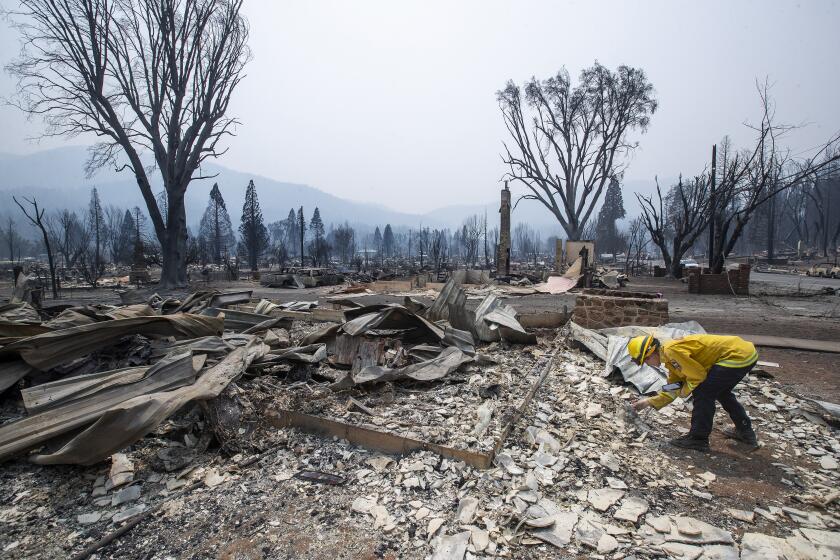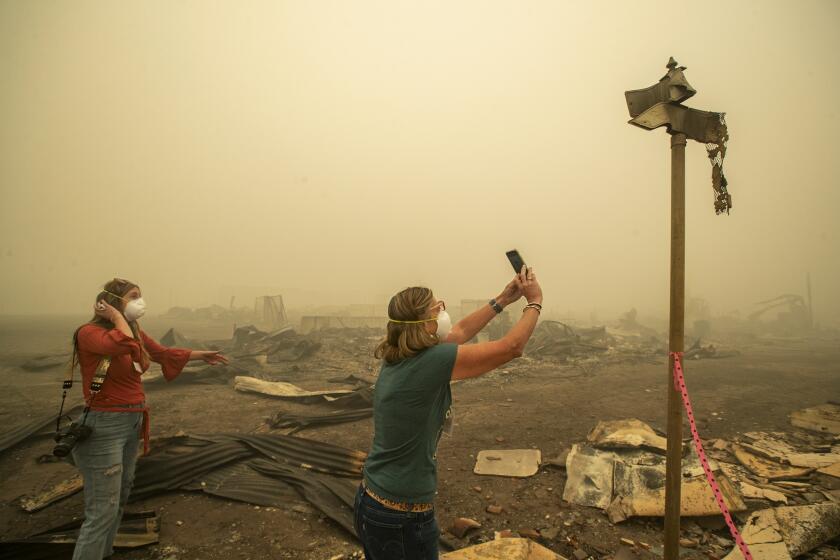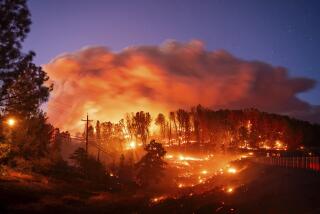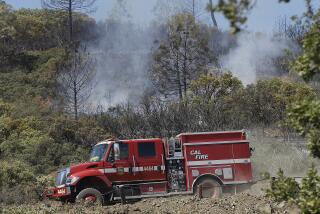Former criminology professor pleads guilty to igniting four wildfires in 2021
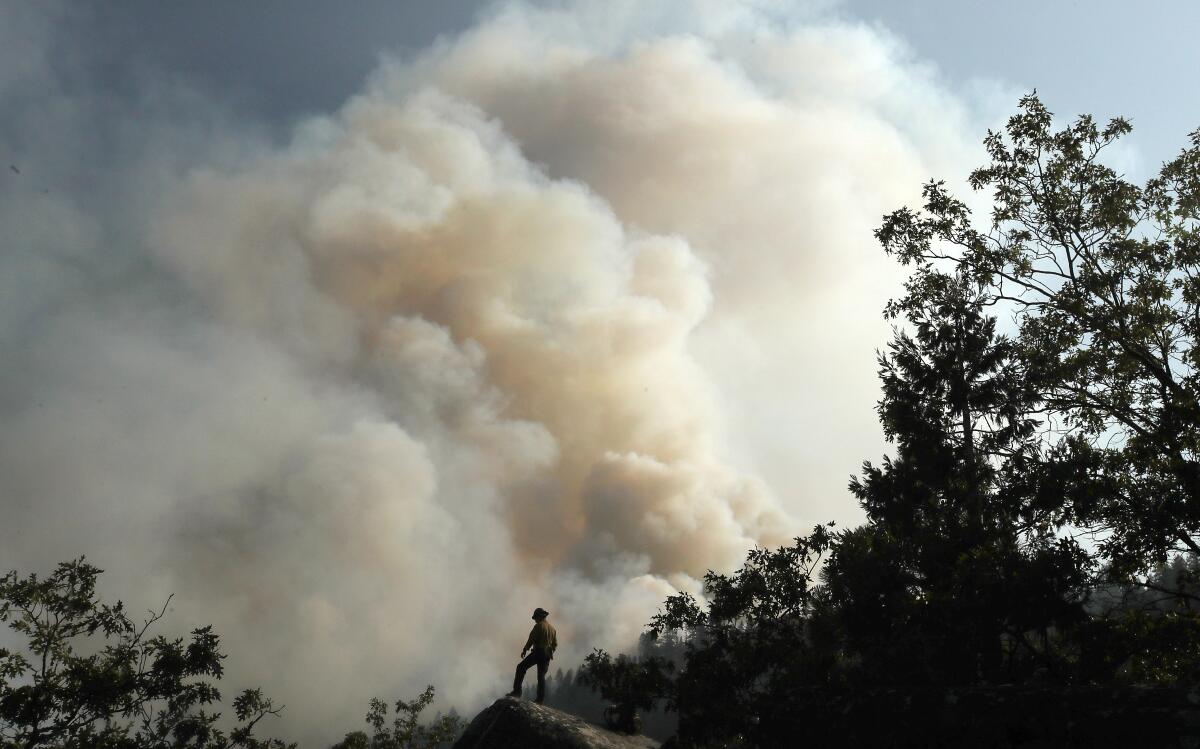
- Share via
A former college criminal justice instructor pleaded guilty Thursday to three counts of arson, including for igniting wildfires in 2021 behind firefighters who were already battling one of the largest California blazes.
Gary Stephen Maynard, 49, admitted to setting four fires in the summer of 2021, according to the U.S. attorney’s office: the Cascade fire, the Everitt fire, the Ranch fire and the Conard fire.
Although he had been initially suspected of igniting other fires — including the Bradley fire that burned more than 300 acres — the four fires Maynard admitted to setting remained small.
Maynard had initially denied setting the fires, but entered the guilty plea Thursday as part of an agreement with federal prosecutors. The San Jose resident had originally been charged with four counts of arson; as part of the agreement, he pleaded guilty to three of them and agreed to pay $500,000 in restitution.
Court documents accused the 49-year-old academic of going on “an arson-setting spree” in the summer of 2021 while firefighters from multiple agencies were fighting the Dixie fire, which scorched 963,309 acres across five counties.
Gary Stephen Maynard, 47, has been charged with willfully starting the Ranch fire and has been linked to at least six other blazes.
Maynard taught briefly at Sonoma State and Santa Clara University. His attorney did not immediately respond to a request for comment.
The Dixie fire had been burning for seven days when, on July 20, 2021, an investigator first came across Maynard, who was about 200 yards from what would later be called the Cascade fire.
Maynard was found under his car, a black Kia Soul. The investigator asked Maynard to stand up. Maynard then “mumbled something about being a professor” and told the investigators he didn’t know anything about the fires, court documents say.
According to the plea deal, the investigator noted that Maynard “was agitated during his encounter.”
Another witness reported seeing the former professor walk away from his car for about 10 minutes, then observing smoke rising from a new fire nearby.
The following day, firefighters spotted a 50-foot-wide fire in the Shasta-Trinity National Forest. An investigator determined the cause of that blaze, dubbed the Everitt fire, was arson.
Tire marks spotted at the scene seemed to match the tire impressions made by Maynard’s car near the Cascade fire, court documents said, and cell site data indicated that he had camped overnight in the area at the time.
Investigators began to follow Maynard’s movements, using a tracker installed on his car through a federal search warrant.
On Aug. 7, 2021, investigators tracked his car to an isolated part of Lassen National Forest that had been closed off from the public due to the Dixie fire.
Experts say there is a lot to learn from the state’s second-largest fire, including how it spread — and how firefighters stopped it.
Maynard reportedly stayed in the area for about 28 hours, and after he left a Forest Service special agent spotted a large column of smoke coming from the forest. The blaze was later named the Ranch fire.
In court records, Maynard also admitted to setting the Conard fire, a second Aug. 7 blaze in the Lassen National Forest.
He was taken into custody the same day after he tried to drive back to the area of the fires.
According to court records, Maynard lied about his location the previous night, contradicting data from the tracker on his car that investigators had already collected.
Maynard is also believed to have been in the area of the Moon fire when it started, according to court records.
Inside his car, officials found lighters and electronic devices that, according to court records, had audio and video recordings of Maynard talking about committing arson, and the sound of matches being struck.
Maynard had also searched online to track the progress of the Dixie fire, including area closures where firefighters were focusing their efforts, court records say.
He is scheduled to be sentenced May 9.
More to Read
Sign up for Essential California
The most important California stories and recommendations in your inbox every morning.
You may occasionally receive promotional content from the Los Angeles Times.
